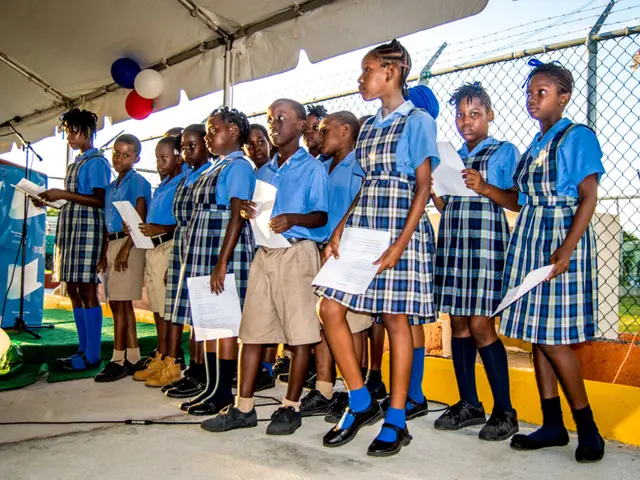US Lawmakers Clash Over Intersex Rights: Ban Surgeries or Silence?
Lawmakers in the USA are grappling with a contentious issue: the medical treatment of intersex individuals, particularly infants and children. While some advocate for a ban on irreversible surgeries without consent, others remain silent or support outdated practices.
In a stark contrast, conservative lawmakers are pushing bills that restrict gender-affirming care for trans youth while allowing irreversible surgeries on intersex infants. Intersex people are calling for an end to these outdated medical practices, advocating for a future rooted in dignity and inclusion. The US Department of Health and Human Services (HHS) released a report in January 2025, acknowledging the pain and injustice inflicted on intersex people due to medically unnecessary surgeries performed on children without consent. These surgeries, aimed at 'normalizing' intersex individuals' bodies, often result in lifelong psychological and physical harm. The report offered a path toward civil rights for intersex people rooted in dignity and informed choice, echoing the sentiment: 'Stop the surgeries. Start the healing.' However, under the Trump administration, the US government has fallen silent on intersex rights, potentially being complicit in harmful practices. Despite international criticism, the US government has not implemented a nationwide ban on these surgeries. Some states have begun debates or proposed legislation, but no state has yet passed such a law. Progressive politicians and groups advocate for a ban, while conservative forces remain largely silent on the issue.
The debate surrounding intersex rights in the US remains complex and contentious. While some progress has been made, such as the 2025 HHS report, the US government and many states have yet to implement concrete protections for intersex individuals. A true child-centered policy would prioritize delay until the child is old enough to participate in decisions about their body and identity. Interested parties should monitor the websites of organizations like interACT and the ACLU, as well as local news from active states like California, New York, or Massachusetts for updates on this evolving issue.








